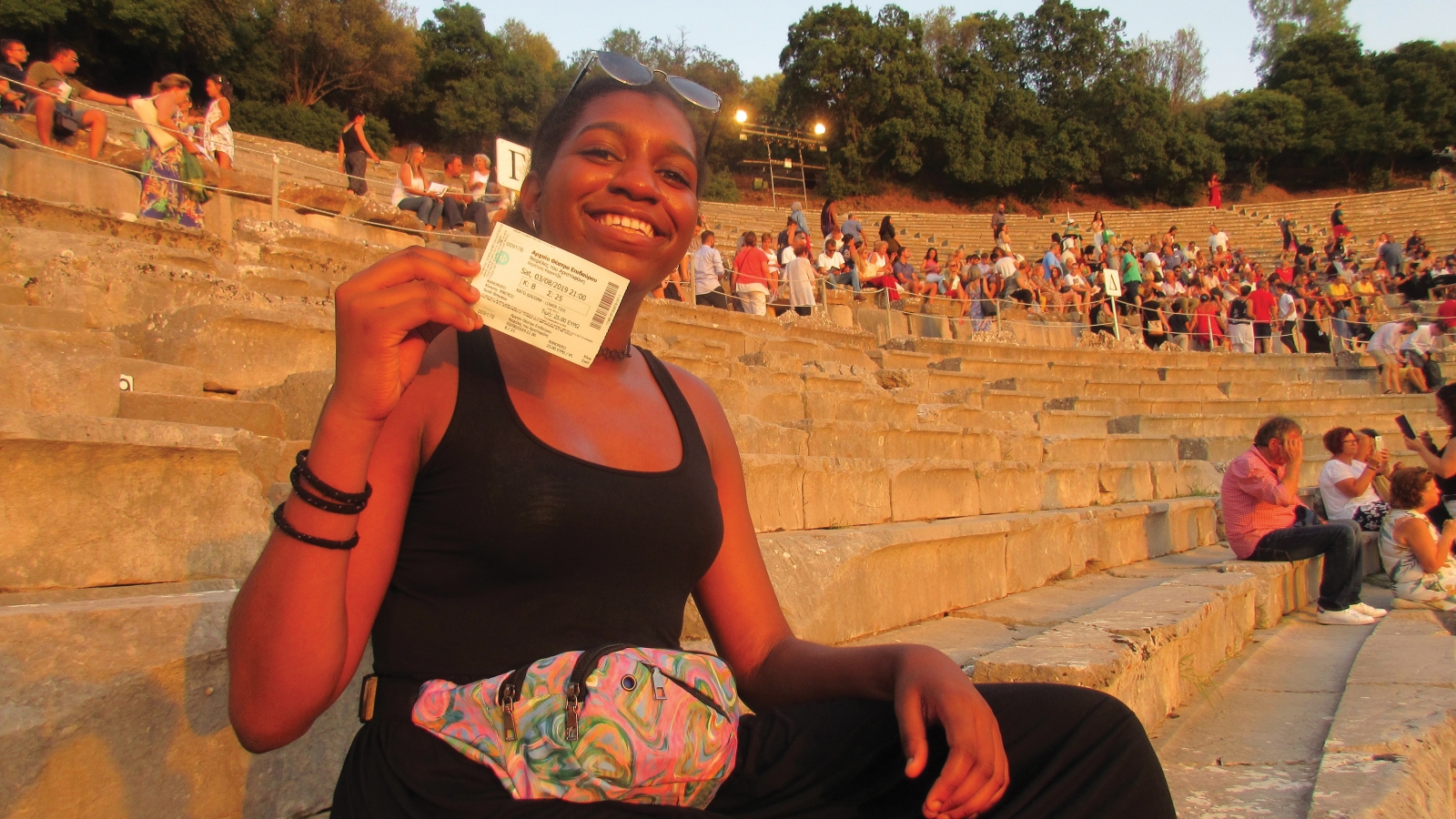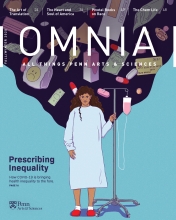Greeking Out
Breyasia Scott, C’20, discovered a new passion after taking Intro to Ancient Greece.

When Breyasia Scott, C’20, came to Penn, her love of theater came with her. She’d gone to the Academy for Performing Arts in Scotch Plains, New Jersey, and knew she wanted to continue nurturing her artistic passion by minoring in theatre arts. A decision to take Intro to Ancient Greece to fulfill a requirement pointed her to her major and led to an award-winning thesis.
“I fell in love with mythology and decided to really go for it and declare an ancient history major,” she explains. But Scott wasn’t done exploring. After taking American Sign Language (ASL) to fulfill another requirement, she added that as a minor. When she studied abroad at University College London, she realized she wanted to learn about more recent history, so she added a history minor to her studies.
“My junior year, I realized I had a major and three minors. At that point, it was too late to go back,” she laughs.
Scott’s senior thesis allowed her to combine her love for ancient history and theater. The first semester of her senior year, she wrote a play under the supervision of her advisor, Emily Wilson. Wilson, College for Women Class of 1963 Term Professor in the Humanities, received wide acclaim for her 2017 translation of Homer’s Odyssey.
Scott’s play, Medea’s Symposium, draws on her experiences as a woman of color studying Ancient History at Penn, Euripides’ 431 BCE play, Medea, and Plato’s Dialogues. “It’s both creative and critical,” Scott explains. “I explore issues of exclusivity in the classics and reframe Medea’s story to consider the experience of the ‘other,’ giving voice to the otherwise silent: women, slaves, and Medea herself.”
In the spring semester, Scott planned to put on a performance of the play with guidance from Rosemary Malague, Senior Lecturer and Program Director of Theatre Arts. She cast actors, booked performance space at Penn Museum, and began directing rehearsals. But the COVID-19 pandemic changed her plans.
Scott wasn’t able to direct a full performance, but she had an opportunity to see an audience reaction when, at the Classics Department senior colloquium, Scott’s classmates read a scene for the rest of the group.
For her work, Scott won the Rose Award, which honors outstanding student research in the College.




